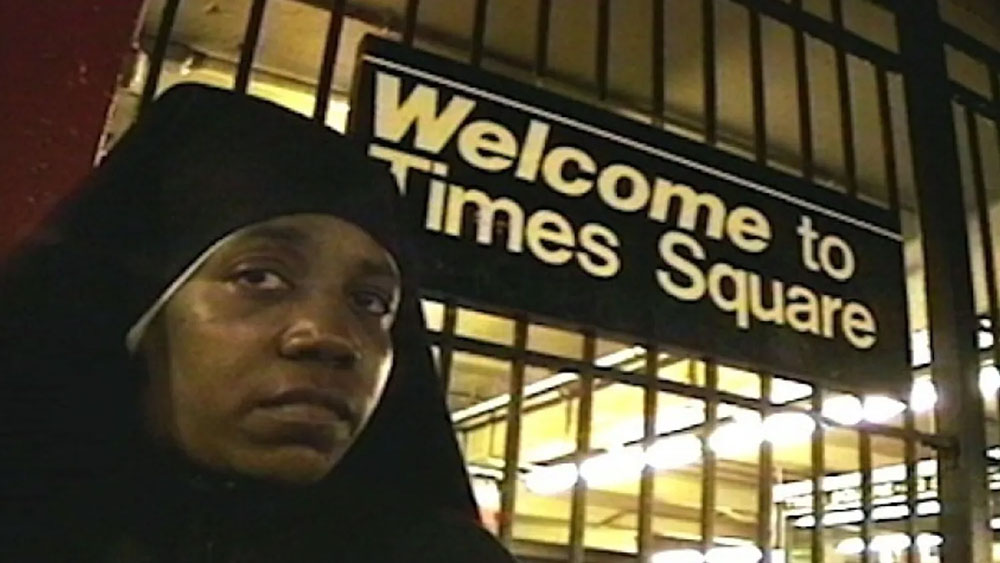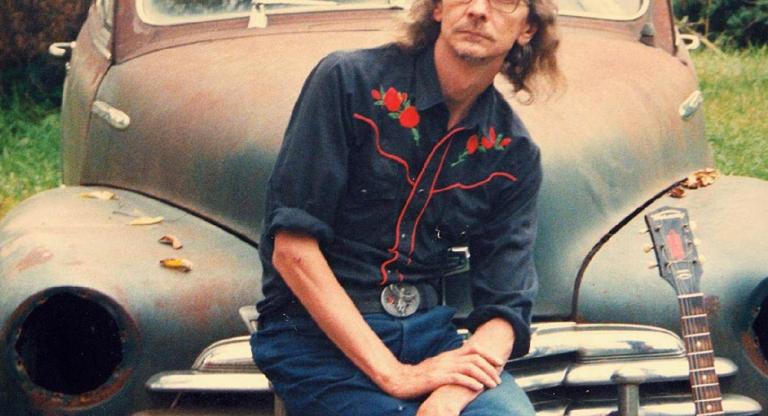Over the course of six years in the early-to-mid-’90s, the street photographer Richard Sandler lingered in the heart of the Great White Way with a video camera, capturing the undiminished cacophony around 42nd Street before its antiseptic redevelopment. But The Gods of Times Square‘s (1999) title should clue viewers in that this is not simply a portrait of the glimmering bowels of New York City before they were flushed to make way for Mickey Mouse and Carson Daly; Gods is as much a city time capsule as it is a work of urban theology, capturing the preachings, rantings, and teachings of a panoply of street preachers.
There’s an impressive array, including but not limited to doomsayers, Evangelical Christians, Muslims, Krishnas, Black Hebrew Israelites, and Jew for Jesus (not born into Judaism, but recently converted). They’re portrayed alongside sundry other creepers, peepers, dancers, panhandlers, bagpipers, and pamphleteers, ranging from execrable homophobes to a woman who just wants other women to have more orgasms. Among the many denizens of Times Square, a few recurring characters emerge, such as James, a middle-aged man who walks around in a clerical collar and is first seen brandishing the Quran before seeming to switch religious codes at random. A white man is introduced face-down prostrating under the boots of the Black Israelites, for whom he volunteers as a human stump. Quizzed by Sandler as to why he offers to debase himself, he offers circuitous, semicoherent responses: “I just can’t hate anyone. I just hope God forgives them.” There’s also a Jim (no relation to James), a lanky white man in his early thirties with a prankish charm who looks like he’s waiting to be street cast. Jim lets Sandler in on a secret: Jesus is already here, and his comeback begins in 1994. “He’s gonna do rock music and illusions. He’s an awesome magician, like Houdini. He’s gonna marry Madonna, and he’s going to become the biggest superstar that ever existed. . . . He’s also gonna have, like, a triple-platinum rock album. Kind of like grunge rock. I’ve heard his demo, actually.” After Sandler gains his confidence, Jim drops the act and gives up his secret: he, in fact, is Jesus.
Sandler’s eye is always more compassionate than leering. His off-the-cuff photography is complemented by lyrical passages of billboards shimmering in rainy puddles, windows reflecting news tickers and other images that read as a standard-definition video rejoinder to Rudy Burckhardt’s comparatively upbeat miniature city symphony Square Time (1967). The urban theists are being inexorably displaced by encroaching new development, signified by towering advertisements of Marky (pre-Wahlberg) Mark in Calvin Klein. However virulent, distasteful, and unintelligible the The Deuce’s devout could be, the old gods of Times Square have all been vanquished by Mammon—who doesn’t have a speck of their grace.
The Gods of Times Square is presented by Elara Pictures and The Film Desk. It screens tonight, November 26 at Roxy Cinema Tribeca. It will then continue to tour other cities, including a presentation by Mezzanine on December 19 at Braindead Studios in Los Angeles.





